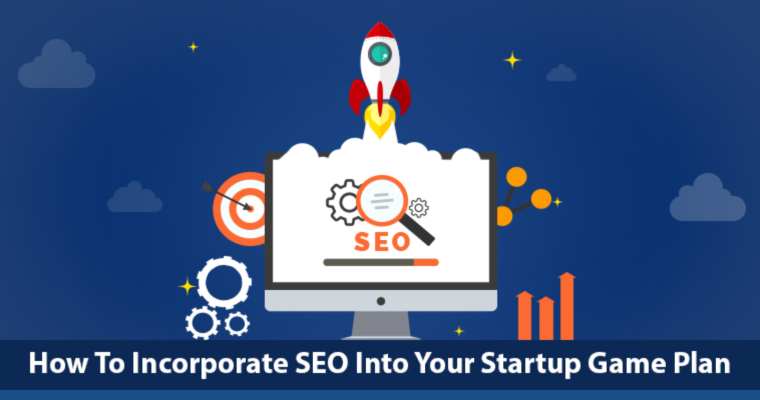Ultimate Guide for SEO for startups in 2020: If you have an e-commerce platform, one thing that can irritate you that is “traffic.” Every online retailer and growth marketer is attempting to achieve the same goal. There are several methods for increasing the website’s traffic. Paid advertising can get you higher SERP rankings, but this approach is very costly to maintain over time. That is why Search Engine Optimization, also known as SEO, is the best choice.
Unfortunately, many e-commerce stores are either unaware of this or refuse to accept it. It’s also difficult to grasp the definition of SEO as a whole. We attempted to provide you with a simple understanding of e-commerce SEO for beginners in this article.
-
How to do a keyword search for a startup:
Keyword research is the process of deciding which terms, phrases, and questions your potential customers are typing into search engines like Google. If you’re a sportswear manufacturer, for example, you have anecdotal evidence that customers would be looking for “red trainers.”
However, keyword analysis reveals that ‘red shoes’ receive more monthly searches in Google.
SEO for startups: Instead, you may want to concentrate on optimizing your content and product pages for this SEO for startup keyword. For example:
- SEMrush will help you with keyword research.
- To begin, SEMrush is an excellent research tool. It has over 17 billion keywords in its database and is an expert at identifying long-tail keywords.
- There aren’t many apps that come close to Google when it comes to searching keywords and keyword suggestions.
- As a result, if you type mobile phones into the search box at the bottom of the SERP, you will see additional search results in the suggestions section.
- To find the correct keywords, you can also use Google Keyword Planner.
-
Use on-page SEO for advanced boosting:
On-page SEO optimization is the next thing on your e-commerce SEO checklist. To know more about e-commerce SEO services check the given link: Ecommerce SEO Services. This will ensure that Google understands the intent of your sites. It also aids your visibility in other search engine results pages (SERPs).
-
Title tags should be optimized:
Since title tags have substantial SEO potential, they have the greatest effect on a page’s CTR. These tags will inform people and search engines about your sites. Try to use descriptive title tags which are 55-60 characters long. For search aim, add your company name at the end.
-
Write concise yet informative meta explanations:
If you search for content and the top search results appear, look at the meta descriptions to get an idea of what the content is about. Don’t use more than 150 characters. Make each page personalized. A proper description is a must. These guidelines will assist you in writing the best possible meta descriptions for each page.
-
Try to optimize the Image accurately:
As a store owner, you want to provide your customers with the pleasure of knowing all of the information about each item. That is why it is important to provide high-resolution product images. To keep the image size under 1 or 2 MB, you can use tinypng.com. For SEO purposes, change the filename to something similar to the head keyword. Instead of 1234.png, polka dot shirt.png should be included. As far as possible, make the file name descriptive.
-
How unique content can boost your startup:
Even if you have thousands of items on your web, you must create unique content for each one. There are no other options or shortcuts available. You may need some time or you may wish to employ someone to assist you. Because of the high level of competition, search engines need content to understand it and rate it appropriately, making it essential for SEO.
SEO for startups: Remember that for each product and category, you must write at least 250-300 words. If you like, you can provide information about any special features, awards received comparisons to other items and a FAQ section.
-
Always try to add a long tail keyword to your content:
Now is the time to use the keywords you spent so much time looking for at the beginning. You can write your content with them. These keywords may be useful in a search engine optimization strategy. Long-tail keywords, on the other hand, have a 4.15 percent higher conversion rate than short-tail keywords. For an instance:
- Markup for Schema.org
Schema Markup will make it easier for your visitors to access your site and for Google to understand your content. It can also result in a 30 percent rise in CTR.
-
Always try to add internal links on your site:
Internal linking is a crucial aspect of eCommerce search engine optimization. Internal linking occurs when you connect to other sites on your website. It aids SEO by assisting you in ranking for your preferred keyword, as well as improving the user experience by directing browsers to relevant sites. Remember that when it comes to internal linking, you must be careful not to connect to irrelevant information. It should be done in such a way that it aids the user in navigating and finding relevant information.
Read Also: 6 Tips to Relocate Alone to a New City
-
Technical issues of SEO and how to fix them?
It’s not just about keywords in SEO. It has a technical element to it. Your site’s speed, user interface, mobile-friendliness, and working links must all be determined. In a nutshell, it’s to ensure that consumers have the best possible experience. At the end of the day, that’s all that matters to Google. That’s why our next e-commerce SEO tips will focus on locating and resolving technical SEO issues. For an instance:
- Recognize the Technical Problems
- To improve your site’s technological SEO, you must first understand how to identify the problems. Since addressing those problems may be the deciding factor between you and your rivals. The most crucial problems are:
- Look for any duplicate title tags or identical meta descriptions.
- Page speed 404 errors can affect SEO.
- Low word count
For more details about SEO for Startups check the following link: SEO Services. So, that’s all about the e-commerce SEO if you want your site to receive thousands of visitors. So, if you follow our e-commerce SEO tips, you can easily manage your new business.










